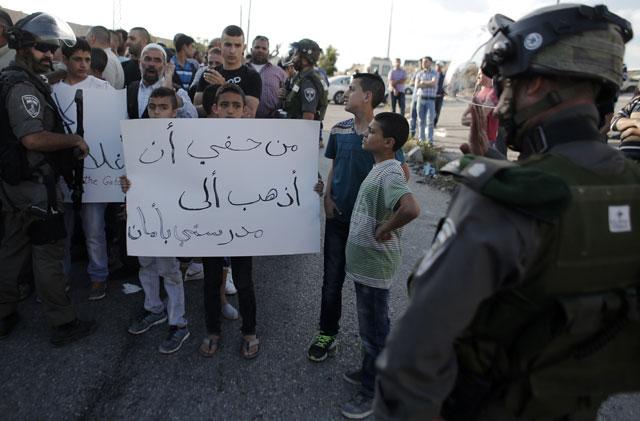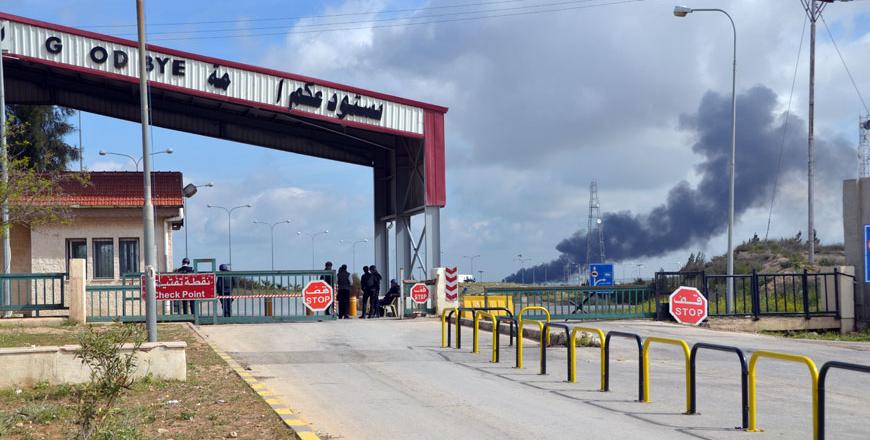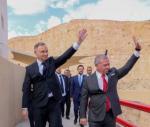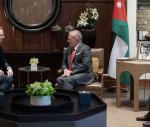You are here
As deal ‘in the making’, Jordan should focus on Syria’s unity — analysts
By Raed Omari - Aug 15,2015 - Last updated at Aug 15,2015
AMMAN — With the emerging talk nowadays about an agreed-upon formula being drafted for Syria's four-and-a half-year conflict, analysts argued that it is a strategic Jordanian interest that any political solution should keep the northern neighbour undivided.
In remarks to The Jordan Times on Saturday, political analysts agreed that there is seemingly an emerging decisiveness by key international and regional players to put the Syrians on the track of solution after almost four years of inaction that left the Arab country open to all hostile scenarios.
In a recent op-ed in Al Ghad daily, Fahed Kheitan said the “settlement train is on track and moving”, citing a series of developments, including Syrian-Saudi talks at the security level, among other signs.
From a wider strategic perspective, analysts also agreed that Jordan's position on Syria should not be confined only to the embattled Syrian President Bashar Assad leaving or remaining in office inasmuch as to Syria keeping its territorial unity untouched.
For Adnan Abu Odeh, a veteran analyst and former minister and Royal Court chief, Jordan's position when it comes to the Syrian crisis is governed by two factors: being a neighbour and recipient.
"Jordan as a regional actor in the Syrian war is a recipient of what the international and other regional players would reach. How we are going to be affected is what should govern our posture on Syria," he said.
Minister of State for Media Affairs and Communications Mohammad Momani disagrees with the part about “recipient”. In recent remarks to The Jordan Times, he stressed that Amman is consulted about everything in the neighbourhood and its voice is heard, reasserting that Jordan has been calling for a political solution from the first day of the crisis.
But all, analysts and officials, agree that to keep Syria united is Jordan’s first and foremost priority in any deal reached.
“Jordan needs a political settlement in service of Syria’s territorial unity,” Abu Odeh said.
He also explained that Jordan has been suffering from the Syrian war and, any deal reached should take into consideration alleviating the economic burdens of the resource-limited Kingdom.
“In addition to burdens resulting from hosting large numbers of Syrian refugees, the Syrian war caused Jordan enormous economic losses” as it has become unable to export its agricultural produce to Eastern Europe through Syria, Abu Odeh said.
“The Syrian war is ultracomplicated and that is indisputable but drafting any political solution to the conflict should entail keeping Syria’s political map untouched.”
Oraib Rentawi of Al Quds Centre for Political Studies said that Syria, for the first time in four years, “is seemingly nowadays on the track of solution”.
“There is an emerging conviction that the ‘absurd’ war in Syria will not end up with a winner and loser but with chaos and longtime hostility affecting the region and the entire world,” Rentawi said, adding: “Many key players in the war have realised that taking sides in Syria is costly, and unfruitful, and that is why they seek settlement.”
Rentawi explained that all key actors in the Syrian war are nowadays adopting a unified rhetoric supporting Syria’s territorial unity and keenness to prevent the collapse of the state institutions.
He also explained that the intensity of the talk about the departure of Assad has “toned down” considerably lately due to “all players’ conviction that such is no longer a game-changer”.
Kheitan agreed that it might be wise to “let go of the Assad’s departure condition, even temporarily”.
“We will be seeing real moves on Syria in October when the US Congress is expected to endorse the Iran nuclear deal,” Rentawi said.
On Jordan’s position on any deal for Syria, Rentawi said: “It is a top Jordanian interest that Syria remains undivided with powerful state institutions. Jordan shares Washington’s views on Syria.”
“Jordan’s first enemy in Syria is not the regime inasmuch as it is terrorism. Jordan’s major priority in the war in Syria is the containment and then the defeat of the Daesh terrorist organisation and the acceleration of the political solution to ensure the return of refugees.”
In a recent joint press conference with his Lebanese counterpart Tammam Salam, Prime Minister Abdullah Ensour said Jordan has “no ambitions, no links and no spies” in Syria, reiterating Jordan’s support of a political solution in Syria since the beginning of the crisis there.
Ensour stressed that Syria’s security and stability are in the best interest of Jordan, adding that Jordan has not approached any organisations in Syria and does not have the funds to finance any of them, the premier added, and this “does not undermine Jordan’s image, whereas other parties have the funds, organisations and multiple players” inside Syria, he said.
Related Articles
AMMAN — Following the adoption of the UN Security Council resolution that supports international efforts to seek a political solution in Syr
The Palestinian cause is still and will always be the central Arab and international issue despite the shifted focus nowadays to other "urgent" matters, including Syria, Iraq, Libya, Yemen and terrorism, analysts agreed Thursday.
AMMAN — Creating a buffer zone along the Syrian-Jordanian border would help limit the influx of Syrian refugees into the country, where they
















